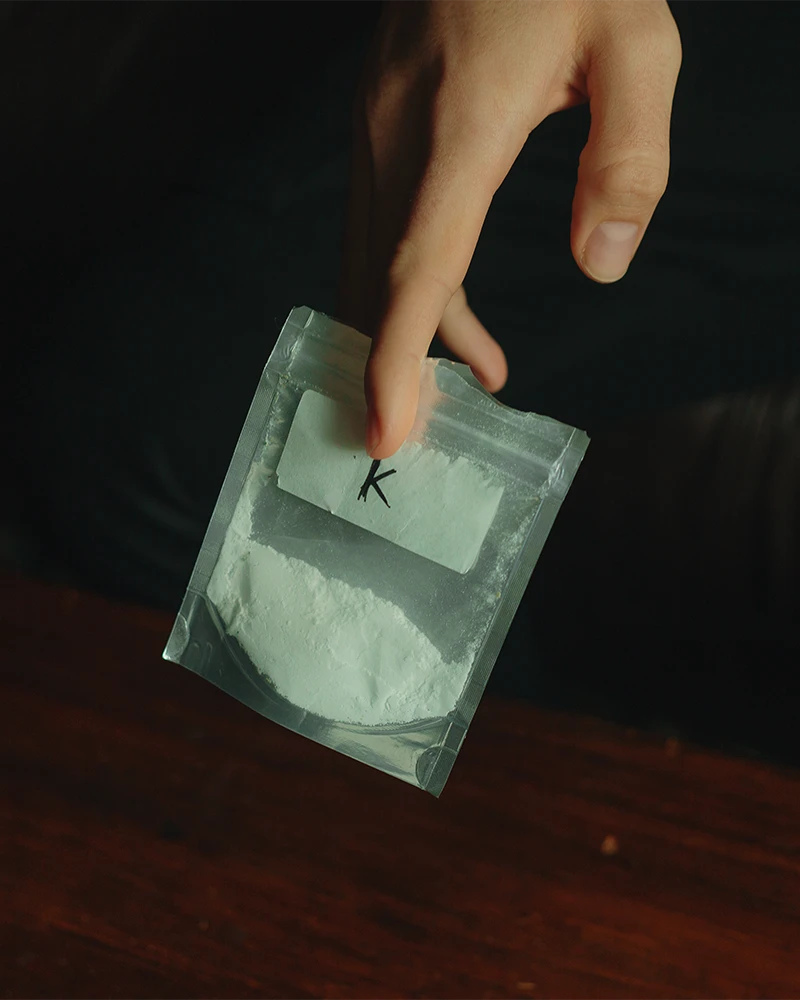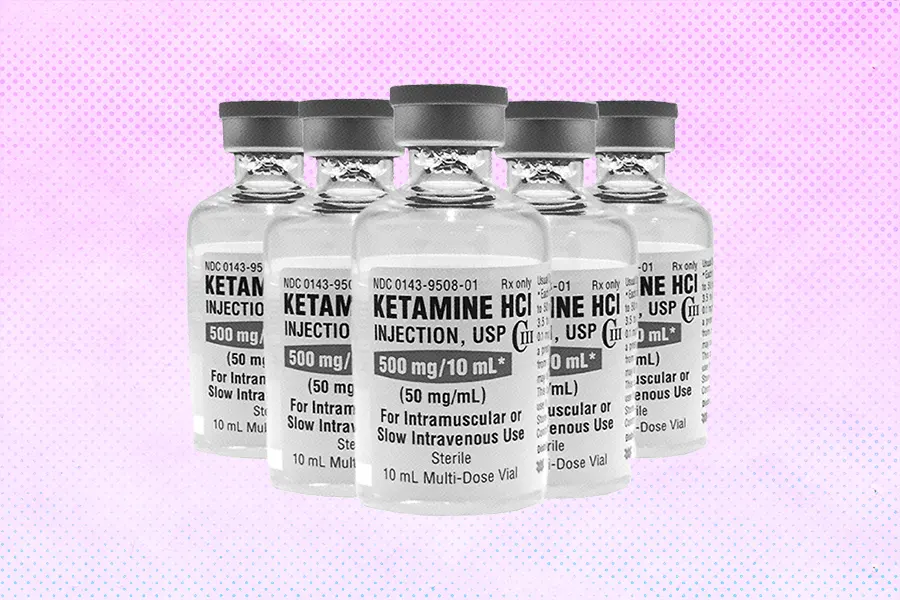Ketamine has long outgrown the days when it was confined to its use as an anesthetic in hospitals. The number of US ketamine clinics—where people receive ketamine for various mental and physical health purposes—grew from 60 to 300 between 2015 and 2018. More and more people recognize ketamine’s potential to help people heal trauma and view their lives more positively. At the same time, ketamine remains a popular club drug, boasting the scary possibility of sending the user into a “K hole,” where they lose awareness of their body and surroundings.
Given the varied effects that ketamine can have, what does the law say about it? Well, ketamine’s legal status is just as mixed as its reputation. Read in for info about the legality of ketamine in its various forms.
The Legality of Ketamine: Laws and Regulations Explained
In the US, Ketamine is legal when a doctor prescribes it. Ketamine is a Schedule III controlled substance, defined by the US government as a drug that “may lead to moderate or low physical dependence or high psychological dependence,” with less potential for abuse than Schedule I and II drugs. Generally, Schedule III substances are only legal with a prescription, says Dr. James Giordano, professor of neurology and biochemistry at Georgetown University Medical Center.

Anyone with a Drug Enforcement Agent license—which includes most doctors—can prescribe ketamine, according to Dr. David Mahjoubi, founder of the Ketamine Healing Clinic of Los Angeles. “The medical boards in the various states grant discretion to physicians,” he explains. “So if a physician sees a need for a patient—whether that’s chronic pain, depression, or anxiety—then they can receive it as long as it’s administered in a safe manner.” Recreational ketamine use, on the other hand, is illegal in the US, as is distributing ketamine without a prescription.
Is Ketamine Therapy Legal? Anxiety, Depression & Some Medical Use
The most accepted and long-standing use of ketamine is as an anesthetic. “Ketamine is approved by the FDA as an anesthetic agent for diagnostic and surgical use,” explains Josh Kappel, founding partner at the cannabis and psychedelics law firm Vicente LLP. “It has been approved for more than 45 years.” Ketamine is used by both doctors and veterinarians to provide sedation and pain relief during surgeries and other procedures.
Most other uses of ketamine are “off-label”—that is, the FDA has not approved them. Off-label uses of drugs are generally “legal and quite common,” but they’re not usually covered by insurance, says Dustin Robinson, founding partner of Mr. Cannabis Law and managing principal of psychedelics venture capital firm Iter Investments. In a clinic, someone can receive ketamine through an IV or intramuscular injection for mental health conditions like anxiety, depression, or PTSD or even physical symptoms like chronic pain or insomnia. A physician can also prescribe ketamine as a pill for someone to take at home. Currently, startups like Mindbloom, Wondermed, and Nue Life offer virtual ketamine therapy, where a patient receives ketamine in the mail and administers it themselves with the help of a guide.
READ: Does Ketamine Have a Dark Side?

Esketamine—a more potent version of ketamine administered as a nasal spray—is the one other form (besides the anesthetic) with an on-label use. Specifically, esketamine has been FDA-approved for treatment-resistant depression. A physician prescribes esketamine spray, which can be self-administered at home. The dose is low enough that the patient can go about their day without experiencing a full-on trip.
How to Grow Shrooms Bundle
Take Both of Our Courses and Save $90!
Where is Ketamine Legal? Cases of California, Florida, Texas & Other US States
States generally have ketamine listed as a Schedule III substance, per federal law, says Robinson. However, laws around ketamine vary somewhat from state to state. “Many state ketamine laws are harsher than other similar drugs of abuse because ketamine has been labeled as a date rape drug by some states,” explains Kappel. California, for instance, considers ketamine possession with the intention to commit sexual assault a felony.
Possibilities for ketamine use also vary from state to state due to legal differences in how medical clinics operate. In Florida, for instance, medical clinics don’t have to be run by physicians, meaning anyone can start a company that provides ketamine therapy (though a physician would still need to prescribe the ketamine). In Texas and California, on the other hand, medical clinics need to be owned by physicians.
Recreational Use of Ketamine: Legal Considerations and Consequences
Ketamine is legal to possess if you have a prescription. “If an individual is found in possession of ketamine, that’s not immediate arrest,” Giordano explains. “The individual has to demonstrate that they have a prescription for ketamine.” If you can, you’re off the hook.
READ: Ketamine for Depression: The Highs and Lows

Suppose someone, on the other hand, is found to possess ketamine without a prescription. In that case, the legal consequences will depend on several factors, like whether you have previous offenses. “Sometimes, they’ll pass it up as a misdemeanor, and in certain cases, possession without a prescription can be a felony,” says Giordano, adding that selling ketamine is usually a felony.
Punishments for possessing or selling ketamine vary from state to state. For instance, in California, the misdemeanor of ketamine possession could yield a fine of up to $1,000 and a sentence in county jail of up to six months. Possessing ketamine with the intention to sell it could be considered a misdemeanor, or it could be deemed a felony punishable by up to $25,000 or three years in prison.
Global Variations in Ketamine Legality: A Worldwide Analysis
When it’s used as an anesthetic to knock people or animals out for medical procedures, ketamine is broadly legal worldwide. The use of ketamine for other therapeutic purposes is not legal everywhere. Still, its popularity is growing, even in some countries with conservative drug policies. In 2021, esketamine was approved to treat treatment-resistant major depressive disorder in Singapore.
Recreational use of ketamine, on the other hand, is illegal worldwide, according to Robinson. While different countries use different language to classify ketamine and other drugs, many handle it similarly to the US. The UK, for example, considers ketamine a class B drug, the second-to-most dangerous category. The Netherlands classifies ketamine as a list 2 substance, making it legal only for medicinal uses.
Should Ketamine Be Legal?
The experts I spoke with did not believe recreational ketamine should be legalized. “It has abuse potential, it has the potential for addiction, and of course, if someone gets too much, they can really hurt themselves,” says Mahjoubi.
Giordano agrees. “The problem with ketamine is it’s a very strong drug, and the risk of making it available directly to consumers is the burden of the social effects it carries,” he says. “I actually advocate that ketamine is only available via prescription.” Still, Giordano thinks it might be a good idea to remove ketamine from its schedule III classification so that punishment for using it would not be as harsh.
In addition, Mahjoubi would like to see more regulations around at-home ketamine usage, even when it’s for therapeutic purposes. Some virtual ketamine therapy startups are “sending tablets to people’s homes without a physician seeing the patient,” he says. “I think that’s pretty dangerous. I think that’s walking a fine line and also monetizing medicine. There’s the risk of overuse if they get too much, and also just in case something happens, whether it’s just a bad experience or nausea or headache or even cardiovascular issues.” Mahjoubi also thinks ketamine administration should be limited to anesthesiologists and psychiatrists since other types of doctors aren’t trained with ketamine in their residencies. Advocates in the US argue that practices like mail-order ketamine and the rise of ketamine clinics make the therapy more accessible.
As ketamine therapy becomes increasingly available, governments and medical boards will have to ask more and more of these questions. In the meantime, those interested in experiencing the therapeutic benefits of ketamine can protect themselves by seeking knowledgeable providers, asking them questions, having integration support in place, and engaging in self-care before, during, and after the journey.
Disclaimer
This article is intended for harm reduction purposes and should not be used in place of medical advice. DoubleBlind does not advocate participating in illicit activities. Always consult your local drug laws before engaging with any unregulated substance.
In the event of an emergency, please dial local emergency services. For mental health services in the US, dial 988. For substance abuse help in the US, please dial the Substance Abuse and Mental Health Services Administration National Helpline at +1 (800) 662-4357.

DoubleBlind is a trusted resource for news, evidence-based education, and reporting on psychedelics. We work with leading medical professionals, scientific researchers, journalists, mycologists, indigenous stewards, and cultural pioneers. Read about our editorial policy and fact-checking process here.

DoubleBlind Magazine does not encourage or condone any illegal activities, including but not limited to the use of illegal substances. We do not provide mental health, clinical, or medical services. We are not a substitute for medical, psychological, or psychiatric diagnosis, treatment, or advice. If you are in a crisis or if you or any other person may be in danger or experiencing a mental health emergency, immediately call 911 or your local emergency resources. If you are considering suicide, please call 988 to connect with the National Suicide Prevention Lifeline.




